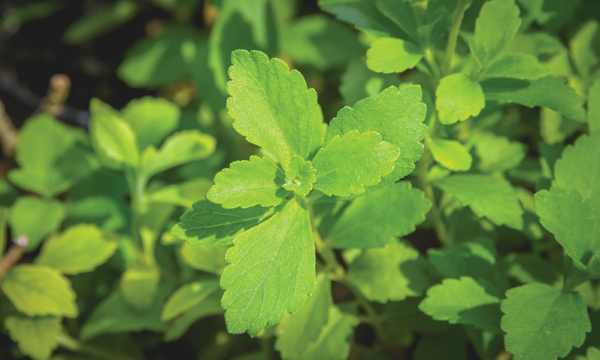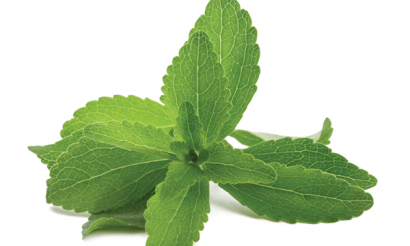Stevia: an ally to healthy lifestyles
- Like
- Digg
- Del
- Tumblr
- VKontakte
- Buffer
- Love This
- Odnoklassniki
- Meneame
- Blogger
- Amazon
- Yahoo Mail
- Gmail
- AOL
- Newsvine
- HackerNews
- Evernote
- MySpace
- Mail.ru
- Viadeo
- Line
- Comments
- Yummly
- SMS
- Viber
- Telegram
- Subscribe
- Skype
- Facebook Messenger
- Kakao
- LiveJournal
- Yammer
- Edgar
- Fintel
- Mix
- Instapaper
- Copy Link
Posted: 18 August 2016 | Chris Peterson, Communications Manager and Maria Teresa Scardigli, Executive Director, International Stevia Council | No comments yet
The last decade has seen dramatic shifts in public perception of healthy versus unhealthy ingredients. Natural sweeteners, like Stevia, are emerging as a key component of a broader strategy to reduce calories. Stevia product launches have soared over the last few years, and consumer tastes are adapting to lower calorie options. As a natural, zero-calorie high-intensity sweetener, Stevia appears to hold great promise as consumers adapt to healthier lifestyles.


The world is facing a global obesity epidemic. While widespread, the good news is that obesity is a problem that can be contained. Faced with less-than-healthy diets, in recent years individuals and regulatory groups are making a positive pivot.
Excessive calorie intake has been a focal point for what is increasingly viewed as a global war on obesity. From diabetes to heart disease, health professionals around the world are cautioning that the overconsumption of high-calorie foods can be debilitating and, in some cases, lethal. The result has been a massive campaign on the part of governments and advocacy groups to steer global populations in a healthier direction.
In the past groups have grappled with tough decisions to curb unhealthy patterns. The biggest difference today is that the obesity epidemic has countless potential solutions – and many of them don’t require consumers to dramatically change their eating habits.
The last decade has seen dramatic shifts in public perception of healthy versus unhealthy ingredients. Natural sweeteners, like Stevia, are emerging as a key component of a broader strategy to reduce calories. Stevia product launches have soared over the last few years, and consumer tastes are adapting to lower calorie options.
As a natural, zero-calorie high-intensity sweetener, Stevia appears to hold great promise as consumers adapt to healthier lifestyles.
What is Stevia?
Of the various types of sweeteners, not all are derived from natural sources. Stevia is among the most commonly recognised zero calorie natural sweeteners, sourced from the Stevia plant.
Stevia as an ingredient is naturally derived from the Stevia plant, a small shrub in the sunflower family native to Paraguay, Argentina and Brazil. Stevia is widely thought to have been used for centuries by the indigenous people of South America to sweeten food and medicine, although modern knowledge of Stevia as a sweetener is largely attributed to Italian-Swiss botanist, Dr Moisés S. Bertoni, whose research dates back to 1901.


Stevia is a zero calorie natural sweetener, sourced from the Stevia plant
Stevia is a high-intensity sweetener naturally sourced and traditionally extracted by steeping the dried leaves in water, filtering and separating the liquid from the leaves and stems. It is then further purified with either water and/or food grade alcohol. The resulting Stevia is up to 350 times sweeter than sugar yet has zero calories.
The sweetness of Stevia is due to sweet compounds called steviol glycosides – of which there are between 30 and 40 known varieties. Stevioside and Rebaudioside A are the most prevalent.
As extraction becomes smarter and more efficient, Stevia continues to become a main – stream sweetener, both as a product ingredient and a table top staple.
Global policies, regulations and sugar taxes
In many ways, a healthy lifestyle comes down to individual choice. But that’s not to say that regulatory groups aren’t taking their own aggressive action. The dominoes are falling across the globe. Earlier this summer, Philadelphia became the first U.S. city to impose a tax on sweetened beverages1. While the tax, in fact, would also include Stevia products, others around allow calorie-free exceptions. Philadelphia follows the lead of a growing number of governments and likeminded groups, including the following:
- The World Health Organization in 2015 recommended limiting fats and sugars to combat obesity2
- In 2014 Mexico raised taxes on sugary drinks3 to one peso per litre to combat the country’s growing obesity epidemic
- U.S. Food & Drug Administration in 2015 recommended 50 grams or less of daily sugar intake4 – roughly a single soft drinks worth; it is poised to require strict labelling of sugar content based on recommended daily intake of sugar not to exceed 10% of total calories
- England’s Scientific Advisory Committee on Nutrition in 2015 recommended cutting that same number in half5 to only 5% of total calories, or seven teaspoons daily.
As more regulatory and scientific bodies follow suit, Stevia is well-positioned to continue to take the lead as a mainstream, natural sweetener. Already, Stevia is approved for use as an ingredient in more than 100 countries, and more than five billion consumers around the world have access to Stevia products.
Companies around the world, including those selling major soft drinks, are introducing Stevia into their products. Not only does this give those businesses options for avoiding sugar taxes, but it encourages a healthier lifestyle for consumers.
A natural solution
Stevia is distinguished from nearly every other low- and no-calorie sweetener because it is naturally derived. As a plant-based sweetener with no calories, Stevia presents the perfect, unprecedented opportunity for:
- Consumers – who are looking for naturally sourced low calorie sweeteners in their search for a healthy lifestyle balance and better weight management
- The food and beverage industry – who can reformulate their products providing reduced calorie/sugar and calorie/sugar-free alternatives from a natural source
- Governments and regulators – who look toward improving nutritional profiles of the foods and beverages available on the market to help fight the dramatic rise in obesity, diabetes, and their related health issues on a global scale.
For decades, high purity Stevia extracts have been approved for use in foods and beverages in Japan. In the last five years leading food safety and regulatory agencies across the world have issued positive safety opinions on the safe use of purified Stevia extracts in foods and beverages. These include the Joint FAO/WHO Expert Committee on Food Additives (JECFA), the French ANSES (National Agency for the Security of Food, the Environment and the Work), the Food Standards of Australia New Zealand, the US Food and Drug Administration (FDA) and the European Food Safety Authority (EFSA).
Pre-clinical and clinical studies show that the use of Stevia extracts is safe for the general population including people with diabetes, children and pregnant women.


The growth of the Stevia industry is accelerating
Surging popularity
Industry has embraced Stevia as a safe and effective alternative to sugar and artificial sweeteners. In fact, since 2009 more than 9,000 new Stevia food and beverage products have been launched, according to Mintel GNPD 2015, with more than 70% launched just in the last 30 months. New products vary drastically; from sauces, yoghurts, and table top products, to juices, sports drinks, and alcoholic beverages. This demonstrates the versatility of Stevia as a practical ingredient.
As populations around the world increasingly seek healthier lifestyles, the food and beverage industry has embraced Stevia as a natural and sustainable solution.
From a consumer standpoint, Stevia is an enormously attractive option. International Stevia Council research indicates that key consumer drivers include naturalness and sustainability – both of which are key strengths of Stevia. The more consumers are aware of Stevia, the more likely they are to recognise the benefits.
And awareness is certainly growing. According to a 2015 Inter – national Stevia Council online global consumer sentiment survey of English-speaking adults, Stevia is the second-most-discussed low and no-calorie sweetener, behind only aspartame. Furthermore, compared with all other low and no-calorie sweeteners, Stevia mentions enjoy the highest positive sentiment. The study examined all online social media English global conversations between June 2013 and September 2015. A calculation of ‘net sentiment’ score distinguishes positive mentions versus negative ones, with results as follows: Stevia (+65 net sentiment), sucralose (+31 net sentiment), aspartame (-48 net sentiment), sucrose (+43 net sentiment) and high-fructose corn syrup (-20 net sentiment).
Within this context, the growth of the Stevia industry is accelerating on a global level. The International Stevia Council estimates the global value of the sweetener market to be roughly $70 billion USD, with sugar accounting for $60 billion. The group also estimates that the Stevia industry alone will grow by more than $10 billion over the next 20 years.
As the world continues to fight sugar-related obesity, market potential and public perception are on the side of Stevia. It’s an ingredient with enormous potential in the broader fight for a healthier global population.
About the International Stevia Council
The International Stevia Council is a 501 (c) (6) not-for-profit organisation incorporated under the law of the State of Delaware in the United States (US). The Council was created in July 2010 by 11 founding members. The International Stevia Council is a global trade association representing the interests of all the players in the Stevia value chain: from leaf growers and Stevia extract producers to ingredient users, such as food and beverages manufacturers. The ISC strives to promote Stevia globally, to protect the natural halo of Stevia and to be the authoritative voice of the Stevia industry.
References
- Peter Van Doren (2016) Philadelphia’s Soda Tax. CATO Institute
- http://www.who.int/mediacentre/news/releases/2015/sugar-guideline/en/
- Alexandra Sifferlin (2016) Mexico’s Sugary Drink Tax is Working, Study Suggests. Time Magazine.
- http://www.fda.gov/…
- https://www.gov.uk/government/groups/scientific-advisory-committee-on-nutrition








